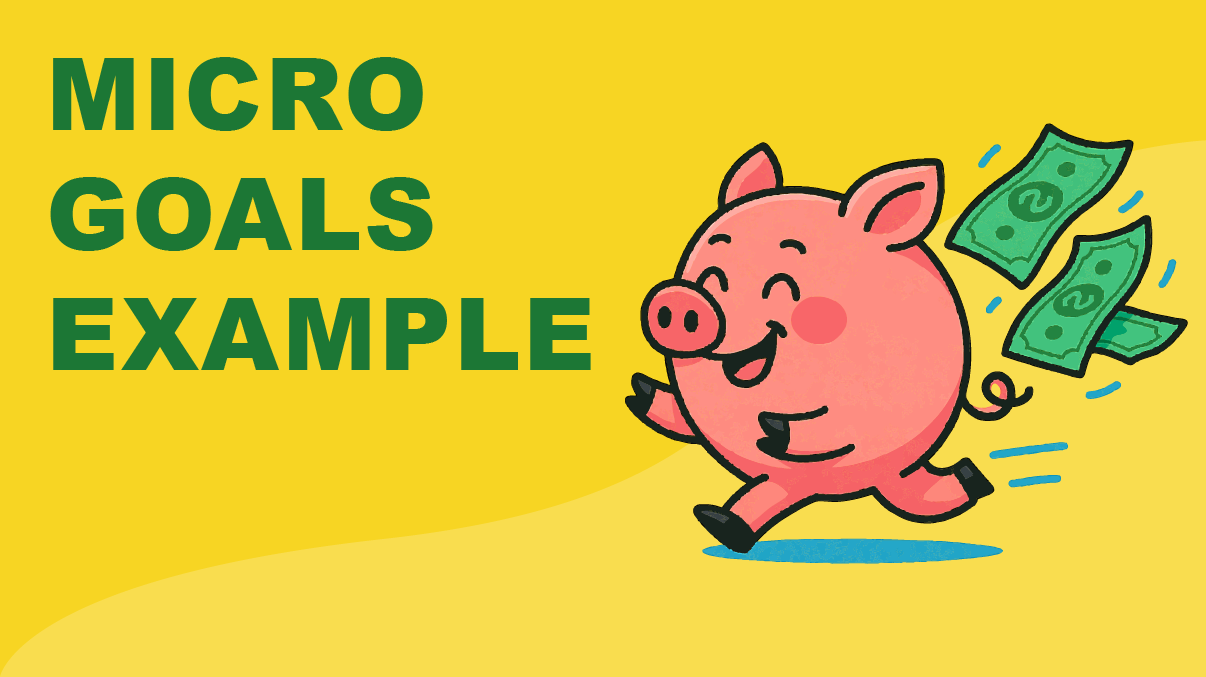When I First Learned About Micro Goals
The first time I heard about micro goals, I almost dismissed the idea. I thought real change came from big, sweeping decisions. But the truth is that most lasting success is built from small, consistent actions.
When I started applying micro goals to my own life and finances, I noticed results faster and stayed motivated longer. The changes felt manageable, and that made it easier to keep going.
What Are Micro Goals?
Micro goals are small, specific actions you commit to that move you toward a bigger objective.
They work because they break down intimidating challenges into steps that feel doable right now.
For example, instead of “I want to save $5,000 this year,” a micro goal would be “I will transfer $100 into savings every Friday.” The second goal is clear, measurable, and easy to act on.
Why Micro Goals Work
-
- They build momentum because you can achieve them quickly
-
- They keep you motivated by giving you frequent wins
-
- They are flexible and can be adjusted as your circumstances change
-
- They remove overwhelm by making large goals feel possible
Micro Goals Examples for a Better Financial Future
1. Save $10 a Week
Set up an automatic transfer to savings for $10 every week. Over time, you can increase the amount as your income grows.
2. Pay $20 Extra Toward Debt Each Month
Even a small extra payment chips away at the balance and reduces interest over time.
3. Review One Bank Statement Per Month
Pick a day each month to scan your account for unnecessary charges or subscriptions you can cancel.
4. Bring Lunch From Home Twice a Week
This can save $20 to $40 weekly, which adds up quickly.
5. Read One Personal Finance Article Each Week
Learning in small bites helps you stay informed without feeling overloaded.
Micro Goals Examples for Life Habits
Building good habits outside of money can also improve your overall well-being and discipline.
6. Walk for 10 Minutes a Day
A short walk can boost mood, energy, and health.
7. Drink One Extra Glass of Water Each Morning
Small hydration habits can have long-term health benefits.
8. Write Down One Thing You Are Grateful for Daily
This keeps your focus on what is going well, even during stressful times.
9. Declutter One Drawer or Shelf a Week
Small organizing projects are easier to finish and maintain.
10. Go to Bed 15 Minutes Earlier
Better rest improves focus, productivity, and overall health.
How to Use Micro Goals Effectively
- Be specific — vague goals are harder to stick to
- Track your progress — seeing results keeps you motivated
- Adjust when needed — life changes, and so can your goals
- Stack small wins — combine multiple micro goals over time to create bigger changes
Takeaway
Micro goals may seem small, but they are the foundation of major progress. Whether you want to improve your finances, your health, or your habits, breaking goals into smaller pieces makes them easier to start and harder to quit.
Begin with one or two micro goals this week, and let your results build from there.
FAQ
Micro Goals Examples
Q: How small should a micro goal be?
A: Small enough that you can complete it without much resistance or preparation.
Q: Can micro goals really help with big financial goals?
A: Yes. Small, consistent actions create momentum and compound over time.
Q: How many micro goals should I set at once?
A: Start with one or two, then add more as the first ones become automatic.
*This content is for informational and educational purposes only. It should not be considered financial or investment advice. Please consult with a qualified professional before making any financial decisions.

